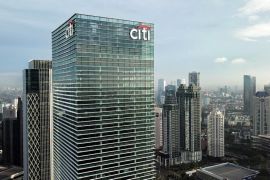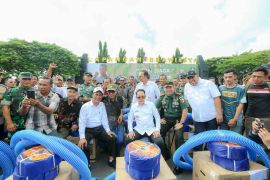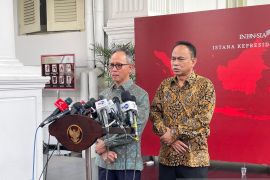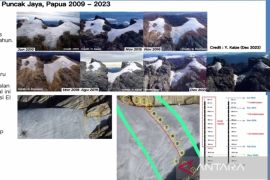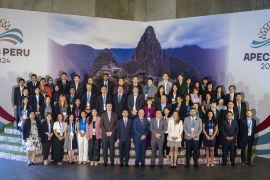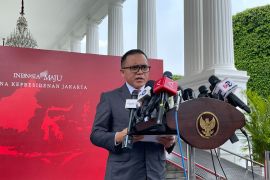"Based on this package, the government has designated eight areas as Special Economic Zones (SEZs) to develop local resources," Chief Economic Minister Darmin Nasution said.Jakarta (ANTARA News) - The government on Thursday announced its sixth economic policy package aimed at reinvigorating the economy of the countrys rural areas through a Special Economic Zones development scheme.
"Based on this package, the government has designated eight areas as Special Economic Zones (SEZs) to develop local resources," Chief Economic Minister, Darmin Nasution said at a press conference held at the Presidential Office on Thursday.
The eight areas designated under the government regulation are Tanjung Lesung in Banten, Sei Mangkei in North Sumatera, Palu in Central Sulawesi, Bitung in North Sulawesi, Mandalika in West Nusa Tenggara, Morotai in North Maluku, Tanjung Api-Api in South Sumatra and Maloi Batuta Trans Kalimantan in East Kalimantan.
"Currently, there are only two SEZs, whose operations were announced by President Joko Widodo, earlier this year. The remaining ones are still under construction," Darmin said.
According to him, the issuance of the policy is expected to provide certainty and attract investors through the adoption of a government regulation on the facility and easiness of doing business in the SEZs.
Darmin said the issuance of the government regulation is not merely making the SEZs a zone with various incentives, but also as an area, which encourages the development of locally sourced industrial clusters in the SEZ locations.
The policy also encourages the integration of efforts by the regional and central governments to create a good investment climate. He said the implementation of the government regulation will be effective if the local government has the commitment to provide the needed facilities.
Matters regulated in the draft government regulation cover the type and amount of fiscal incentives and various other facilities in the manpower sector, immigration, land and licensing services.
Investment in the production chain, which is the focus of the SEZ, will also get bigger incentives than the incentives for investment, which is not the focus of the SEZs.
The sixth economic policy package also will regulate water supplies for the people in a just and sustainable manner.
The background of this policy is related the decision of the Constitutional Court (MK), which annulled a 2004 law on Water Resources. Darmin said that in order to fill in the legal absence as a result of the annulment of the law, a 1974 Law on Irrigation would be reinstated with certain exceptions by the MK.
The exceptions by the MK in the Law are, among others: the exploitation of water might not disturb, ignore and eliminate the peoples rights to water; the state should meet the peoples right to water; the sustainability of the environment as one of the peoples rights; supervision and control of water are a must; and priority for the exploitation of water is given to state-owned/regional government-owned companies (BUMN/BUMD).
If all of these limitations are met and water sources are still available, the government will be able to grant a license to private companies to exploit the water resources under certain and tight conditions.
The sixth economic policy package also simplifies the licensing procedures under the Food and Drug Supervisory Board (BPOM). The policy aims to guarantee consumption security, quality and food/drug price affordability. It also aims to increase industry and export of food/drug products through service and supervision of raw material procurement.(*)
Editor: Heru Purwanto
Copyright © ANTARA 2015

